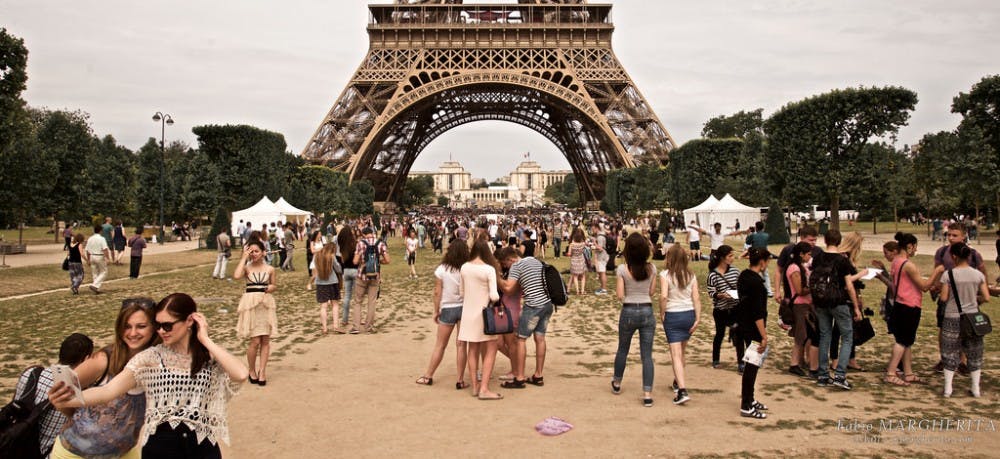
This summer, I had the opportunity to travel to Europe. My three-week trip included destinations in the UK, France, Germany, and Switzerland. For the first time in my life I visited international landmarks that I had only ever dreamed of seeing, like the Eiffel Tower, Westminster Abbey, and the beautiful Rhine River. For anyone on the fence about making the trip, it was worth every single penny and painstaking hour of planning, .
In three of the four countries I visited I could not speak the language and knew very little of the local culture. Outside the embrace of tourist-friendly restaurants and hotels I became a helpless foreigner. Luckily, I wasn’t alone. Nearly half the people I saw on my travels were also tourists — some from the United States, but most from other parts of the EU, China, and South Korea.
Still, everything wasn’t perfect. In some of the places I visited, I felt marginalized as a tourist. People unapologetically walked into my photos, some locals stared when I dined in restaurants, and I was the victim of angry glares when I accidentally bumped into people. And while I considered myself an American tourist, I felt I was lumped into the unspoken “international Asian tourist” group — at one point, I was handed an unsolicited Chinese flyer when neither my family nor I know a word of Mandarin.
My experience may serve to highlight the less-than-stellar treatment that tourists might face in Europe. Barcelona has recently been in the news for its anti-tourism graffiti; staining the walls of popular streets are inflammatory messages such as “Tourists go home,” or “Tourist you are the terrorist.” Anti-tourist sentiment is growing in other popular vacation locations as well.
It is true that not all tourists are created the same. Rowdier groups can crowd public areas, overuse local resources, and cause destruction. In fact, some vacation destinations have had to shut down to recover from the mistreatment and trash left behind by irresponsible visitors. But these cases are anomalies — they don't represent all tourists and should not warrant disrespect from locals.
Most importantly for host countries, tourism can rake in significant domestic income. Tourism makes up 20% of Greece's national GDP, 15% of Spain's, and 13% of Italy's. This is especially important in light of the European economic crisis — a strong tourism industry may just be the lifeboat that pulls debt-stricken countries out of the hole.
And one can’t say they have been on a trip to Europe until they have seen an international tour group. These large and boisterous groups descend on commercial buses and swarm local attractions like ants. They are, understandably, the bane of locals (and even fellow tourists), but it’s important to remember that these people are investing time and a lot of money to learn about the country and its people and therefore deserve a certain degree of respect.
In summary, tourists are a special group of people — they are entitled to take expensive trips abroad and fully enjoy shopping, sightseeing, and even working or studying in foreign countries without necessarily living there (or paying their taxes). Tourists shouldn't have to feel inferior or awkward, especially because they are most likely helping the countries’ economies. But it’s equally important to exercise some self-restraint and understand socially acceptable behaviors when visiting a foreign country. After all, we wouldn’t want our own cities trashed or overrun by tourists, so we should return the favor.

JENNIFER LEE is a College sophomore from Fairfax, Va. studying economics. Her email is leej@thedp.com.
The Daily Pennsylvanian is an independent, student-run newspaper. Please consider making a donation to support the coverage that shapes the University. Your generosity ensures a future of strong journalism at Penn.
Donate



